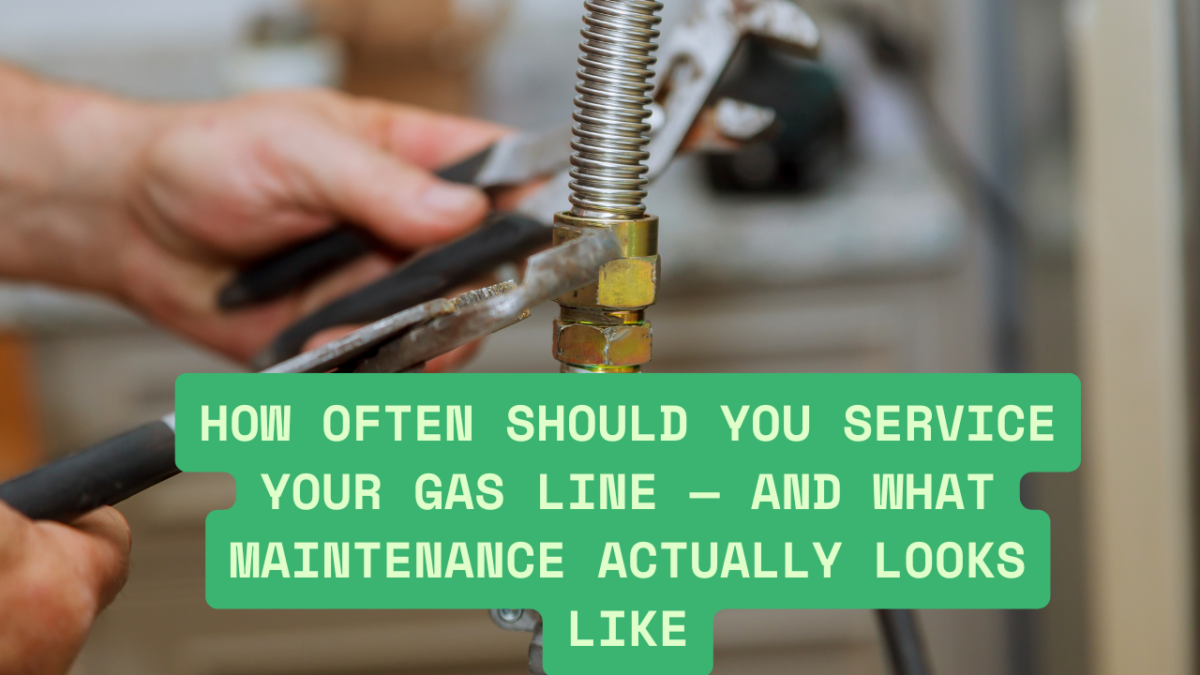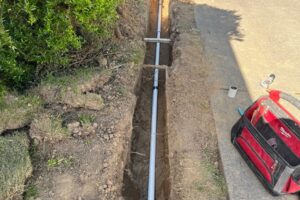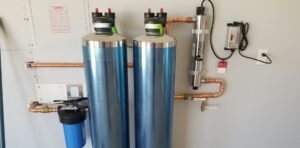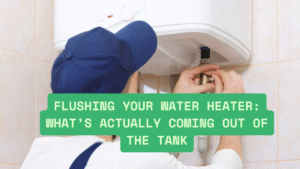When people think of “home maintenance,” they think of changing air filters, cleaning gutters, or maybe flushing the water heater.
But gas lines?
Most folks forget they even exist — until something smells funny or stops working.
As a plumber who works with gas every week, let me tell you:
Regular gas line maintenance is one of the most overlooked safety steps in any home.
Here’s what it involves, when you should do it, and why it’s more important than you think.
Why Gas Line Maintenance Matters
Gas lines don’t need constant attention.
But when something goes wrong — it’s never small.
- Leaks can cause fires, explosions, or carbon monoxide poisoning
- Old fittings can loosen over time
- Rust and corrosion can eat away at outdoor pipes
- Small issues often go undetected until they become dangerous
And because most gas piping is hidden behind walls or underground — you won’t notice until it’s urgent.
So… How Often Should You Service It?
Here’s what I recommend for homeowners in Sacramento:
Once Every 2–3 Years:
A full visual and pressure inspection of all accessible gas lines.
- Appliance connections (stove, water heater, furnace)
- Exterior meters and risers
- Attic and crawlspace lines
- Shut-off valves and regulators
If You Just Bought a Home:
Even if the home passed inspection — get a licensed plumber to check gas piping.
Inspectors rarely pressure-test or dig into the details.
After Any Major Work:
If you’ve remodeled, added appliances, or changed out equipment — double check your lines.
Shifts in demand = pressure and safety risks.
What We Check During Gas Line Maintenance
Gas maintenance isn’t just “looking around.” Here’s what I do on every visit:
- Pressure Test
– We check the line’s ability to hold stable pressure (no slow leaks) - Soap Test at Key Joints
– We apply leak detection solution to common problem spots - Visual Inspection
– Look for rust, exposed pipe, stress points, unstrapped lines - Appliance Check
– Ensure connections are tight and in good condition - Code Review
– Is everything installed correctly? Are valves accessible? - Ventilation & Clearances
– Especially for water heaters and furnaces — fire code matters
What Maintenance Can Catch Early
- Small leaks that haven’t set off alarms yet
- Undersized pipes after appliance upgrades
- Improperly installed connectors
- Old flex lines that don’t meet code
- Rust or damage from sprinklers, rodents, or weather
I’ve saved homeowners thousands by catching this stuff before it became urgent.
What to Avoid
Please don’t:
- Spray Windex on your pipes and “watch for bubbles”
- Assume a lack of smell = no problem
- Wait until your utility company finds a leak and shuts off service
Proactive checks are faster, cheaper, and way less stressful.
What We Do at Golden Valley Plumbing
When we perform gas maintenance, you get:
- A full-system check — not just a peek at the stove
- Transparent results
- Honest recommendations (we don’t upsell what you don’t need)
- Fast, clean, and code-compliant service
Want to make sure your gas system’s good to go? Book a maintenance visit with Golden Valley Plumbing — we’ll take care of it, no stress.
Final Word
Gas lines are one of those things you forget about — until it’s too late.
A quick check every few years can keep your family safe, your appliances efficient, and your repair bills low.
And hey — peace of mind is always worth it.




